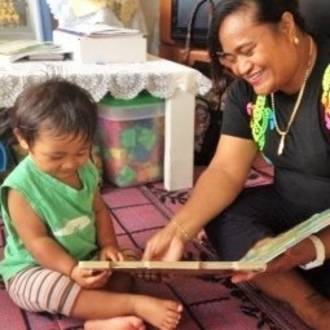Benefits of oral storytelling
|
Oral storytelling is a traditional way many cultures around the world pass down knowledge, values, and beliefs. We can support children and give them a sense of belonging by engaging in oral storytelling ourselves as we pass on knowledge of our wider whânau, ancestors, where we’ve come from, where we are now, and where we might go together in the future.
|
You might also be interested in ...
Learning to be resilient
Being resilient is an important life skill that can be taught from infancy and will help your child cope with change and uncertainty throughout their life. Parents cannot protect their children from facing disappointment forever, so children need to learn skills to cope as they face every day upsets and change. Find out why resilience is important, what influences resilience and practical ways to help develop your little one’s resilience.
Teaching empathy & compassion to preschoolers
Empathy is the precursor to compassion, and it’s only when we experience empathy that we can be compassionate. Parents are integral in teaching a culture of learning to respect others' feelings and helping young children to develop empathy.







We can support children by engaging in oral storytelling ourselves as we pass on knowledge of our wider whânau, ancestors, where we’ve come from, where we are now, and where we might go together in the future.
Sharing and talking about this provides our tamariki with a sense of belonging as they learn about who they are, and the people and land that they’re connected to.
Children can be exposed to a language rich environment right from birth and engaging in a wide variety of language genres encourages children to be imaginative, creative, and to experiment with how words are put together.
As we talk with our infants, sing songs or lullaby’s, and read books together, children are learning about the sound that letters and words make.
As children grow and develop, they will start to ask questions and share their own thoughts and ideas.
We can support children with their developing language by acknowledging their contribution to a story, or retelling of an event, by allowing them the time to convey their message in an unhurried, peaceful environment.
Activities to support language development include sharing stories from books, creating plays with characters, sharing stories about what your child enjoys doing, creating your own books with images from around your home or local environment, scrapbooking with your child contributing to the story behind the photos, rhymes, poetry, songs and creating your own verses.
Tell your friends
Like the article you've just been reading? Click on the Refer A Friend link at the top of the page and send the details to friends who might like to read it too.More Hot Topics for you to enjoy
Source: This article was written by Nurtured At Home - providing high quality learning environments in a safe and nurturing home.